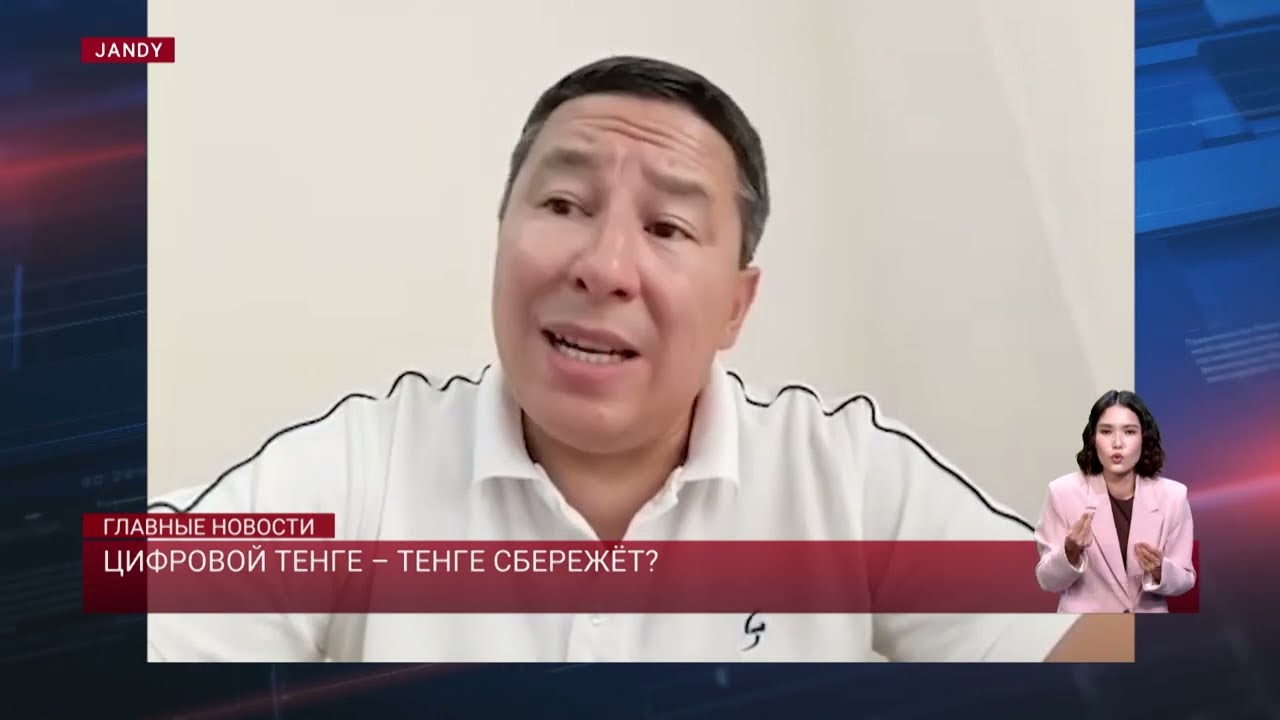At an expanded government meeting in February this year, the President noted that financial inefficiency in the healthcare system is a serious problem, despite significant investments in the industry over the past five years, pointing to the work of the Social Health Insurance Fund.
Economists express concern that a significant part of the funds (3.3% of GDP) is spent bypassing the budget, without control from the government and the public. Contributions to three extra-budgetary funds alone amounted to 3.9 trillion tenge last year, which underlines the significant scale of financial flows outside the state budget, reports inbusiness.kz .
In an interview with Inbusiness.kz Director of the Talap Center for Applied Research Askar Kysykov has already noted that the government could consolidate extra-budgetary funds, primarily the Federal Migration Service and the Social Insurance Fund, since they operate on a solidary principle. And the functions of these extra-budgetary funds could easily be financed within the budget through taxes.
"Previously, before the creation of the Federal Migration Service, the committee for payment of medical services successfully coped with its tasks. Perhaps it would be worth returning to this practice, but the social bloc and representatives of extra-budgetary funds resist this idea, because they do not want to give up financial independence and lack of control over their funds. They independently manage financial flows, and they are not subject to any serious restrictions and control measures that are within the budget," he noted.
Inbusiness.kz decided to collect figures on how much money Kazakhstanis collect from the country's key extra-budgetary funds.
Social Health Insurance Fund
The Fund has a special status of a strategic buyer of medical care for the population of the Republic of Kazakhstan and performs the functions of a financial operator of the funds of the OSMS system (compulsory social health insurance) and the funds of the GOBMP system (guaranteed amount of free medical care). The customer of these services is the Ministry of Health of the Republic of Kazakhstan. Contributions are made by both the able-bodied population and the state for certain categories of citizens (children, pensioners, etc.)
The plan for the purchase of medical care for 2023 amounted to 2.5 trillion tenge, where the budget of the GOBMP is 1.5 trillion tenge, the budget of the OSMS is slightly more than 1 trillion tenge. Compared to the previous year, funding increased by 19%, the Social Health Insurance Fund reported. As a result of the procurement procedures, contracts were concluded with 4856 medical service providers in the amount of 2.5 trillion tenge. The total actual number of employees of the fund as of December 31, 2022 amounted to 867 people. The income in the form of the fund's commission in 2022 amounted to 0.67%, which amounted to 10.5 billion tenge, of which 5.6 billion tenge was allocated for the remuneration of the fund's employees.
Despite the allocation of huge sums from the budget and contributions from citizens, the OSMS Fund is one of the extra-budgetary funds that constantly faces criticism for inefficiency. Patients report poor-quality medical services provided in institutions funded by the CSHI. Long queues for examinations lead to the fact that patients are forced to go to private clinics. The OSMS system does not allow patients to receive medical services where it is convenient, and not only in the clinic to which they are attached.
Patients are often forced to pay extra for medical services or buy medicines at their own expense. These problems undermine the credibility of the CSHI system and lead to inefficient use of public funds allocated for health care. To improve the situation, it is necessary to increase the transparency and accountability of the CSHI, strengthen financial management and establish effective control mechanisms.
State Social Insurance Fund
According to the latest financial statements of the company for 2023, the fund's assets amounted to 1.3 trillion tenge. Revenues for the year amounted to 690 billion tenge, of which 536 billion tenge were social contributions and 152 billion tenge – investment income. The fund's assets include government bonds of the Ministry of Finance, KTZ, DBK, Baiterek Holding and other issuers.
The state administration body of the fund is the Ministry of Labor and Social Protection of the Population. Recall that social contributions in the amount of 3.5% of the employee's income are carried out by the employer. The fund's own funds include the authorized capital and commission, the rate of which in 2023 did not exceed 0.70%.
The Fund carries out investment activities through the National Bank, placing its assets in financial instruments. According to the reports, commission income last year amounted to 3.5 billion tenge, of which 2.3 billion tenge were allocated for salary expenses. It is worth adding that payments during the pandemic in the amount of 42.5 thousand tenge were paid from the State Fiscal Service.
Unified Accumulative Pension Fund
Contributions to the UAPF in 2023 amounted to 2.1 trillion tenge. As of April 1, 2024, pension savings in the amount of KZT 18.9 trillion have been formed on individual and conditional accounts of depositors of UAPF JSC. Since the beginning of the year, their growth has amounted to about 1.02 trillion tenge (5.7%). It is noteworthy that interest income in the first quarter of 2024 almost caught up with the size of contributions, which clearly reflects the power of compound interest and the importance of effectively managing your retirement savings.
Compared to the same date last year, the volume of pension savings increased by almost 3.5 trillion tenge or 22.6%. In 2022, the fund received a commission income of 0.01% per month from the amount of assets of the pension scheme, which amounted to KZT 16.1 billion for the year. As of December 31, 2022, the number of employees of the fund amounted to 1,367 people. Staff costs amounted to 8.6 billion tenge.
Since the beginning of the second half of 2023, all Kazakhstanis are allowed to transfer up to half of all their pension savings to private managers in order to manage pension assets more effectively. In other words, Kazakhstanis can indirectly influence the quality of management and the rate of growth of their pension savings by choosing a manager.
Kazakhstan Khalkyna Social Fund
As of May 1, 2024, the fund received 247 billion tenge. In 2023, the foundation provided charitable assistance in the amount of 65 billion tenge. The report on receipts to the Public Fund "Kazakhstan Khalkyna" indicates that in the period from January 1 to April 30, 2024, 50.9 billion tenge was received. During this period, the fund provided charitable assistance worth 25.6 billion tenge.
The total cost of approved charitable programs and projects is 199 billion tenge, the total cost of concluded contracts is 133 billion tenge, 116 billion tenge has actually been paid for charitable programs and projects.
The Problem Loans Fund
The company's financial statements for 2022 indicate that as of December 31, 2022, the group had an accumulated loss of KZT 257 billion (as of December 31, 2021 – KZT 266 billion). As she previously told in an interview with inbusiness.kz deputy Tatyana Savelieva, the Problem Loans Fund was created during the crisis period, it had specific goals. The Government is considering the need for further functioning of the fund until its closure. In this regard, there is no need to include norms on the FPC in the Budget Code.
The second part of the question concerns the rescue of banks. The current Budget Code prescribes a mechanism for targeted transfers to improve the quality of banks' loan portfolios, but this rule is excluded in the new code, respectively, the possibility of supporting banks is excluded. Recall that the losses of this fund amounted to KZT 3 trillion related to the repurchase of problem loans from BTA, Kazkommertsbank, Tsesnabank and others.
Education Infrastructure Support Fund
This fund was established in February 2023. It is formed at the expense of funds seized in corrupt criminal cases in order to finance the construction and reconstruction of secondary education facilities. The foundation does not have an official resource. According to government data announced in December last year, the fund received about 150 billion tenge seized from corrupt officials. By the beginning of the 2023/2024 academic year, 13 schools with 24,566 student places have been commissioned in Kazakhstan at the expense of the Education Infrastructure Support Fund. This is reported by the press service of the Ministry of Education of the Republic of Kazakhstan.
Victims Compensation Fund
It was founded in January 2018. It is aimed at creating a legal framework for providing financial assistance to persons affected by crimes. The main source of replenishment of the fund is criminal fines. In general, it is financed from four sources – these are fixed payments imposed by the court; monetary penalties for non-fulfillment of procedural duties; proceeds from correctional labor; a recourse refund of compensation from the guilty person.
The law defines three categories of victims. These are minors who are victims of sexual violence, victims of human trafficking and torture – under eight articles of the Criminal Code. The second category is victims who have suffered serious harm to their health, or infected with the immunodeficiency virus – HIV/AIDS, according to 19 articles. And the third category is legal successors in case of death of the victim as a result of a criminal offense – according to 35 articles. However, there are no amounts in open sources that accumulate in this fund.
According to the Prosecutor General's Office, announced in March 2023, at that time, the Ministry of Finance paid more than 312 million tenge to citizens who were financially affected by crimes, but did not receive compensation for harm due to the fact that the crime was not solved or the culprit was hiding from justice.
What about transparency and accountability?
Currently, extra-budgetary funds are not included in the republican budget. Accordingly, there is no full-fledged parliamentary oversight of the expenses of those of them who work in solidarity. The Government provides Parliament with an analytical note on public finances, but these reports are not approved by Parliament, which allows the government to use funds without proper control. This practice is condemned by the World Bank, the OECD and the IMF, which are calling for a more transparent budgeting system.
This causes serious problems in spending public funds and requires the participation of Parliament in approving all expenditures. Taking into account the assets of extra-budgetary funds, state holdings Samruk-Kazyna and Baiterek, which are also financed from the budget, about half of the state finances are beyond the control of the public and parliament, which creates problems in financial transparency and management, inbusiness emphasized in an interview.kz economist Murat Temirkhanov.
Author: Майра Медеубаева
Source: https://inbusiness.kz/ru/news/vnebyudzhetnye-fondy-kazahstana-kakimi-summami-oni-rasporyazhayutsya



